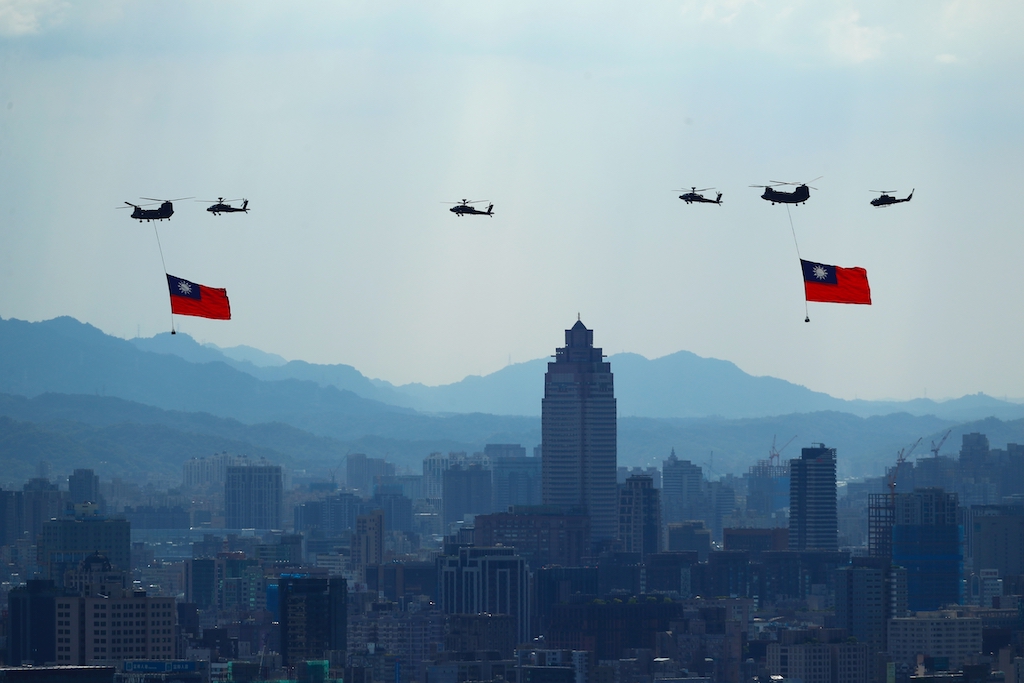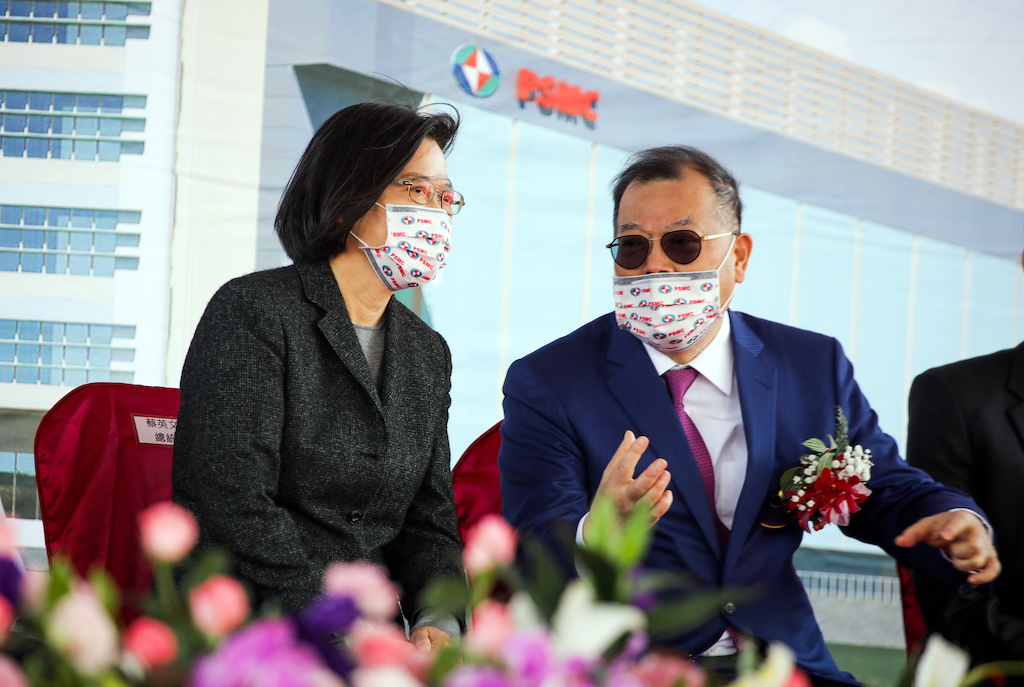Taiwan: Scenarios for an invasion from China
Russia’s failures in Ukraine could make China cautious about its designs for Taiwan’s “reunification.” However, Beijing may see reasons to press ahead.

In a nutshell
- China’s invasion of Taiwan remains possible
- Beijing may want to take advantage of the West’s focus on Ukraine
- China and Russia may cooperate to withstand Western sanctions
The Russian invasion of Ukraine has shown that the quest for personal prestige, historical nostalgia and beliefs in national myths still play a role in shaping international politics. The economy is important, of course, but it is only part of the story in some cases. Indeed, Taiwan may be another victim of the rhetoric of “reunification with the motherland” and Beijing’s need to boost its image with the illusion of an easy gain on the international stage.
Some speculate that Russian President Vladimir Putin’s blunder in Ukraine will make mainland China more cautious. As Ukraine has taught the Russians, reunification is not always welcome – spoiling the aggressor’s plans to present the world with a fait accompli before reactions and countermeasures take force.
There are important differences, however, between Ukraine and Taiwan. The world has recognized Ukraine as an independent nation since the collapse of the Soviet Union in 1991, while many nations – including the United States – do not support Taiwan’s independence and recognize the People’s Republic of China as the sole legal government of China.
Beijing’s dilemmas
One may also argue that Beijing might be encouraged to take advantage of the West’s preoccupation with Eastern Europe and possibly reluctance to oppose Russia and China simultaneously. In this light, of course, ongoing tensions in Ukraine would justify a deal between Russia and China to allow Russia to circumvent Western sanctions and set the stage for China’s possible invasion of Taiwan.
The current global situation will soon hit the well-performing Taiwanese economy. Thanks to its free-market approach, Taiwan is a success story. It features an impressive growth record and low inflation (the government predicts 2 percent in 2022, up from 1.6 percent in 2021). Taiwan is a world player in electronics (microchips), a significant machinery exporter and a major destination for high-tech foreign direct investments.
For the Taiwanese, heightened tensions threaten its robust trade with mainland China and Hong Kong, which absorb about 50 percent of the island’s exports. A political crisis will force the Taiwanese to direct more resources to the defense industry, while future investments by domestic and international actors will be threatened. Growth can suffer. In short, independence is expensive even without overt aggression.
Beijing is surely aware that the Taiwanese will likely destroy the much-coveted production capacity before the People’s Liberation Army ends the war.
From the Chinese viewpoint, the economic scenarios that could follow a successful attack on Taiwan unfold on two levels. Locally, the Chinese authorities may find it attractive to appropriate the island’s high-tech manufacturing plants and engineering technologies. Yet, Beijing is surely aware that the Taiwanese will likely destroy the much-coveted production capacity before the People’s Liberation Army ends the war. And the Taiwanese have made it clear that attempts to unify China mean war.

Internationally, China would be vulnerable to Western sanctions and disruption in world trade flows. Recent Ukraine events have shown that the Western resolve is not a bluff, and the cost of attacking Taiwan would be considerable. Moreover, these costs should also include consequences in the non-Western world, especially in Asia, where Beijing has invested significant resources.
Read more from Enrico Colombatto
- China’s bureaucrats crack under pressure
- What’s behind Russia’s ‘ruble clause’?
- The future of international organizations
Keeping options open
Despite the economic illogicality of aggression, many observers believe that Taiwan will become part of China before Beijing celebrates its 2049 “Centenary Goal” (democracy, prosperity and harmony). Some even believe that Chinese President Xi Jinping wants to complete the reunification of all “Chinese children” by the end of his 2022-2027 term. Appeals to symbolic events are almost equivalent to deadlines, and we believe that attempts to unify the two countries will be made. The big question regards the terms. By and large, two options are on the table, and mainland China seems to be willing to keep them both alive.
One consists of a two-step strategy to intensify the economic links with the island. This approach was unveiled in 2018/2019 and aimed at encouraging young Taiwanese – individuals and firms – to cooperate with their partners in the mainland, both visiting and starting joint companies. The peaceful view was mentioned again in early 2020 under the “peaceful reunification” and “one country, two systems” slogans and repeated once more in October 2021.
This does not mean political unification but might eventually end up in a compromise that allows Beijing to save face, Taipei to spare suffering and destruction, and the world a severe crisis. The “one country, two systems” formula has already been used to define Hong Kong’s status for the 1997-2047 period, after which all autonomy would be canceled.
If Taiwanese resistance were to last long enough, the West would likely try to supply Taiwan with military equipment.
Will this strategy work? Much depends on what Beijing means by “one country,” but two issues make it less than viable. The loosest kind of “one country” is a confederation, an institutional arrangement that generally includes common foreign policy and defense. The Taiwanese authorities would consider both features unacceptable, even if Beijing abandoned all its hostile activities toward the island. The Hong Kong deal went through because the signatories were China and the United Kingdom. Nobody asked the Hongkongers (who had no defense capabilities), and nobody was committed to supporting them had they opposed the move. The Taiwanese case is different.
Scenarios
Hence, unless the mainland Chinese forget about their grand promise to reunite China, the “liberation” of Taiwan is just a matter of time. Four scenarios are worth considering.
China’s failure
One regards the possibility that the Chinese fail to occupy and “pacify” Taiwan in less than a week so that the West reacts militarily, and the conflict escalates. If Taiwanese resistance were to last, the West would likely try to supply Taiwan with military equipment during the battle, and Beijing would try to hit Western vessels and aircraft with dire consequences.
East-West confrontation
A second scenario concerns whether the West does react and thus accepts both the military consequences (direct armed confrontation with China) and the economic outcomes that would follow: the collapse of the globalized trading system the world has been enjoying over the past several decades. Many will regret the time people complained about the supply-chain problems of the Covid years.
China pauses
A third scenario focuses on the variables that would persuade Beijing to attack the island. As mentioned earlier, mainland China would have no economic benefits from occupying Taiwan, especially if the Taiwanese sabotaged their high-tech factories. The economic cost would be extremely high, in any case. China is heavily dependent on foreign trade and foreign direct investments. It is not clear whether the unification rhetoric will persuade the Chinese to bear with the suffering that an economic war would involve.
Face-saving deal
The fourth scenario relates to mainland China’s economic performance. During the first quarter of 2022, the Chinese economy did well, thanks to a rather generous monetary policy and massive (public) investments in infrastructure and electronics (microchips). Yet, observers predict that real gross domestic product (GDP) growth will slow down during the rest of this year (to about 5 percent for the entire 2022), while the rate of urban unemployment will keep rising.
This trend is not yet alarming news for Beijing, but the picture could be less comforting if economic performance deteriorates in the coming years. Whereas a fast-growing Chinese economy does not bode well for Taipei, a marked slowdown could open new prospects. Perhaps Beijing would react to a disappointing economic performance by “distracting” the Chinese with a military adventure. Or maybe the Chinese leaders believe that a battlefield failure coupled with serious economic problems would be more than a headache and that their political future might be in jeopardy.
If Washington and its allies believe that the Chinese can quickly occupy Taiwan without much bloodshed, then we should expect efforts to strike a mutually face-saving deal with China. It could be about some sort of smooth and gradual reunion process.
However, if Taiwan is expected to put up serious resistance, the West had better help Taiwan before it is too late. Precisely, it needs to ensure that sanctions are not too porous and show President Xi that the cost of aggression against the island nation may be unexpectedly high.






